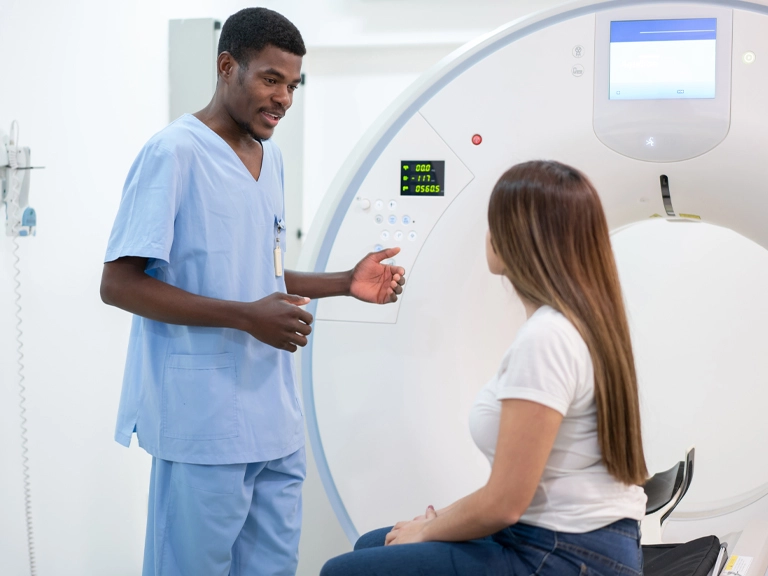Getting Screened for Lung Cancer
Learn about the low-dose CT scan, insurance information, and eligibility. If you qualify it could save your life.About the Low-Dose CT Scan
A low-dose CT scan is a special kind of X-ray that takes multiple pictures as you lie on a table that slides in and out of the machine. A computer then combines these images into a detailed picture of your lungs.
A study on early detection of lung cancer found that only the low-dose CT scan can reduce mortality for those at high risk. If you’re a current or former smoker over the age of 50, you could meet the high risk eligibility criteria.
*If you don't see a site listed in your zip code or within traveling distance, there are additional sites that perform lung cancer screenings but are not yet accredited by American College of Radiology. In addition to participation in the American College of Radiology Lung Cancer Screening registry, American College of Radiology accredited sites have American College of Radiology CT accreditation in the chest module and their screening protocol meet minimum technical specifications. You should speak to your doctor to determine what best meets your needs.
Understanding The Results
A “positive” result means that the low-dose CT scan shows something abnormal. This is usually a nodule of a concerning size. You may need to have additional scans or other procedures to find out exactly what it is.
These next steps should be discussed with you by your physician and/or the team of experts at the screening center.
A “negative” result means there were no abnormal findings at this time on this scan. Your doctor should discuss when and if you should be tested again.
There may also be an “indeterminate” result, and your doctor may recommend watchful follow-up and further imaging at a later time.
The best way to prevent lung cancer is to never smoke, or stop smoking now. If you are still smoking, talk to your doctor about ways to help you quit smoking. Visit Lung.org/freedom-from-smoking for quitting support through our online programs and in-person support groups, or call the Lung HelpLine at 1-800-LUNGUSA.



